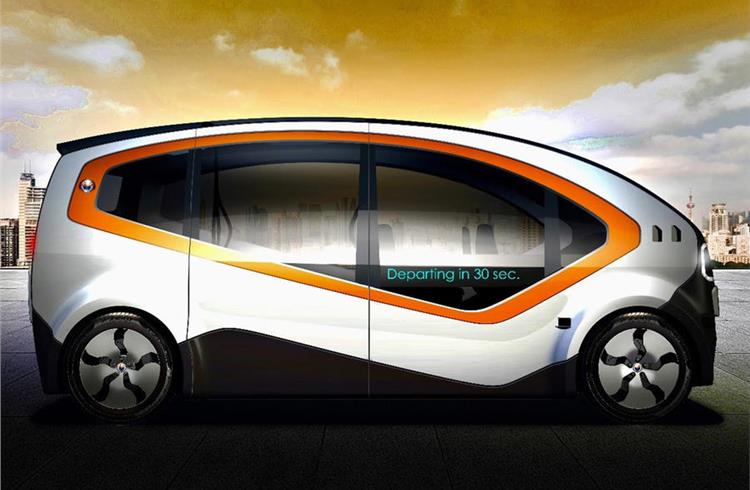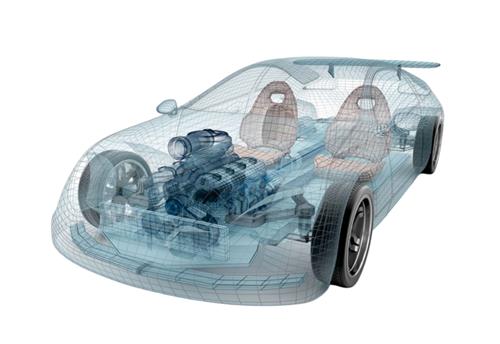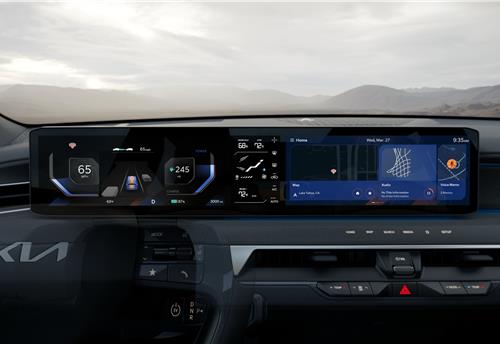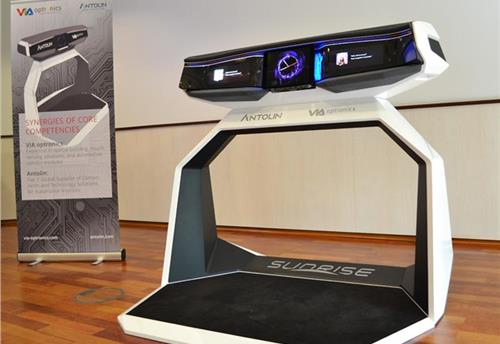Fisker Orbit autonomous electric shuttle to use in-wheel motors
Pioneering in-wheel electric motor technology will be applied to Fisker's 'other' project - an autonomous electric shuttle.
Fisker has revealed its latest electric project: the Orbit, an autonomous shuttle bus with in-wheel motors.
The Orbit is designed for use in urban environments and can pick up passengers from their location, rather than a traditional bus stop. Rides are requested from an app on the passenger’s smartphone along set routes used by the shuttles.
The in-wheel motors used are the Protean Drive system, created by British tech company Protean Electric. Their application, combined with the autonomous capabilities of the shuttle, mean that passenger space is at a maximum compared with the shuttle’s size.
Protean’s system uses a permanent magnet and synchronous electric motor, giving each wheel 109bhp. The Orbit is likely to use a two-wheel drive in most of its applications but is available in four-wheel drive. This means that powertrains with 218bhp or 436bhp are available.
Each motor also produces 922lb ft (1250Nm) of torque, so the four-wheel-drive version of the Orbit could conceivably produce 3688lb ft (5000Nm) of torque. However, the motors are likely to be toned down for their application in the Orbit, given its purpose.
Company founder Henrik Fisker said: “The Orbit already encompasses breakthrough automotive technology, design innovation and exciting touches that will change the way urban populations think about short-trip experiences.
“We selected Protean’s in-wheel powertrain technology to further deliver on those promises. The fastest path to fully autonomous vehicles is through shuttles like the Orbit, and we’re excited to lead the charge into the future of mobility with such world-class, sustainable technology.”
Passengers in the Orbit can pick different 'mood zones', although Fisker hasn't yet detailed what changes depending on the zone.
Testing of the Orbit will begin later this year and the first Orbit routes will be deployed in 2019.
RELATED ARTICLES
Marelli Talbros Chassis Systems wins Rs 1,000 crore business from European OEM
The order, to be executed over an eight-year period, is for the supply suspension arms tailored for both conventional in...
Kia launches customised NBA display themes for North American market
Display Themes is a customised service that supports a personalised vehicle experience, allowing users to customise the ...
Antolin and VIA Optronics unveil versatile vehicle cockpit concept
The Sunrise vehicle concept cockpit, which is engineered for seamless transitions between manual and autonomous driving ...





 14 Jun 2018
14 Jun 2018
 3196 Views
3196 Views





 Autocar Pro News Desk
Autocar Pro News Desk




